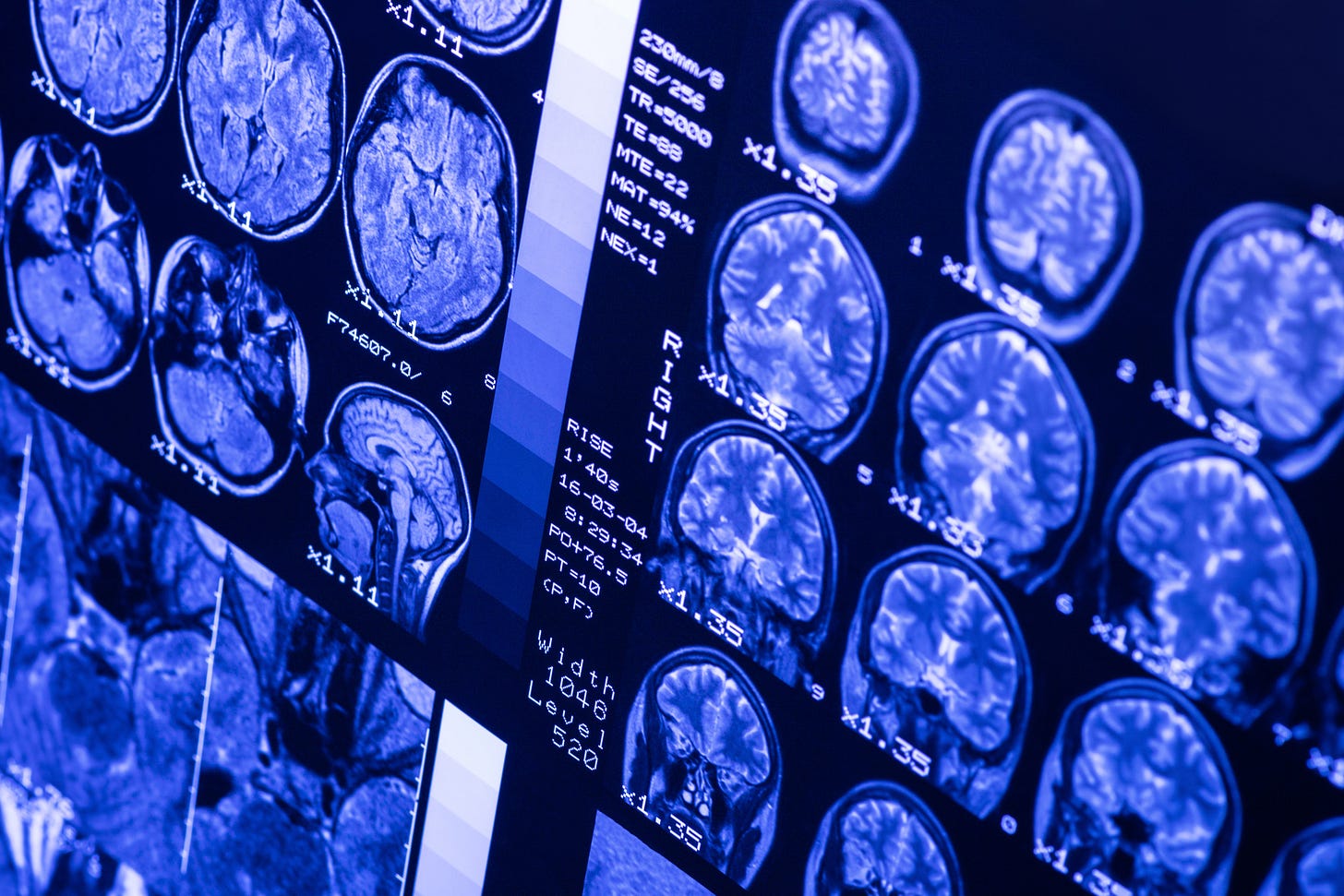The Cambridge Breakthrough: AI's 82% Accuracy in Predicting Alzheimer's
A mother's perspective on the groundbreaking advancements in neurodegenerative disease detection

As a mother of three young children, I've always been fascinated by the potential of artificial intelligence to improve our lives. I want to be up to date to make the best choices when it comes to healthy alternatives for our family.
Interestingly, it wasn't until my husband's grandmother passed away from a neurodegenerative disease that I truly understood the devastating impact these conditions can have on families.
For about ten years before her passing, we watched Grandma’s memory fade. Her daily life became increasingly challenging, and it was heartbreaking to witness it. We loved her very much, and she was one of the kindest people I met from whom I learned many life lessons. That's why I'm so excited about the recent advancements in AI-powered early detection and diagnosis of neurodegenerative diseases.
One of the most promising developments is how AI can analyze various biomarkers to detect conditions like Alzheimer's and Parkinson's disease years before symptoms become apparent.
With AI, we can peer into the future of our brain health. It sounds pretty futuristic but these are the times we are living in.
These AI systems can examine brain scans, picking up on subtle changes that might escape even the trained eye of a radiologist. They can also analyze voice recordings, detecting minute alterations in speech patterns that could signal the onset of a neurodegenerative condition. Have you heard of these studies before?
What fascinated me, was the groundbreaking work done by researchers at the University of Cambridge. They've developed an AI tool that can predict Alzheimer's disease with an astonishing 82% accuracy.

As a mother, I often think about how this could impact my children's future and future generations. If we can detect these diseases early, we can slow their progression or even prevent them altogether.
This AI tool uses data from cognitive tests and MRI scans to identify individuals who are likely to progress from mild cognitive impairment to full-blown Alzheimer's disease.
It's amazing to think that a computer algorithm can see patterns that might not be obvious to human doctors. Better still: This tool is three times more accurate than current clinical tests.
The potential impact of this technology is enormous. Early detection could mean earlier interventions, better planning for families, and potentially more effective treatments. As someone who has witnessed the toll of neurodegenerative disease firsthand, I know this could be extremely valuable.
Of course, as with any new technology, there are challenges to overcome. We need to ensure that these AI tools are accessible to everyone, not just those who can afford expensive tests. I think we are still a long way until this is possible.
We also need to consider the ethical implications of early diagnosis and how to support individuals and families who receive this information. There will be a need for a more sensitive way to deal with these case by case.
Despite these challenges, I hope for the best. The idea that we might be able to detect and address these devastating diseases before they take hold is incredibly powerful. As a mother, I want to protect my children's future. I know I can't shield them from everything, but knowing that science and technology are working tirelessly to combat neurodegenerative diseases gives me comfort.
So I keep researching the AI topics that interest me, and I will keep sharing my findings with you. Please let me know if you enjoy these or if you are curious about other AI topics as well.
Thank you for reading.
What are your opinions about the role of AI in medicine? What do you want to know more about using it in either your own life or those around you?
Share in the comments your thoughts and experiences. Let's discuss ways we can utilize this power of AI to develop healthier futures for ourselves and our communities.
Your voice matters as we go into this exciting frontier in healthcare!
Here are a few other articles on AI we published recently:
P.S.
If you have been looking for an inexpensive yet thoughtful gift for someone you share knowledge with, consider gifting a subscription to Dancing Elephants Press on Substack. This weekly magazine will improve the quality of their life. Give tips to DEP writers here.
Before you go: Please check out Libby’s new book release. It will help everyone, even if you have not experienced narcissistic abuse. This book creates more self-awareness to empower the reader to avoid being manipulated and psychologically abused. She wrote the book after experiencing complete hell with narcissists.










I would like to know much more before I trusted this technique to make a diagnosis about early onset dementia. For example the early onset of hearing loss makes people much more tentative in their speech patterns because they don’t understand what they actually hear. Even with hearing aids the loss of tones and sounds eventually make an impact that leaves people wondering what is wrong when the individual does respond correctly to questions or give correct answers. The problem is hearing loss, but the interpretation could be senility. Likewise with the development of cataracts. I discovered my mother was actually guestimating not actually seeing when she gave me a ride home and had to stop to open and close two gates. She overcompensated by stopping much farther beyond the first gate and stopped much too close to the second. I realized she couldn’t see and had my sister take her to have her eyes tested. She had quite bad cataracts and needed surgery. Once her eyes healed she started doing a whole range of activities she had stopped doing.
This is a technology that is so flawed that it cannot even solve the simplest of puzzles a child can solve and you trust it with telling you what to do about your children and others will read this and think that they should use it also. What credentials do YOU have to make any recommendations like this? How long have you studied this technology? There are many writers here I am proud to be with. You are not one of them. Dr. Randy Kaplan.